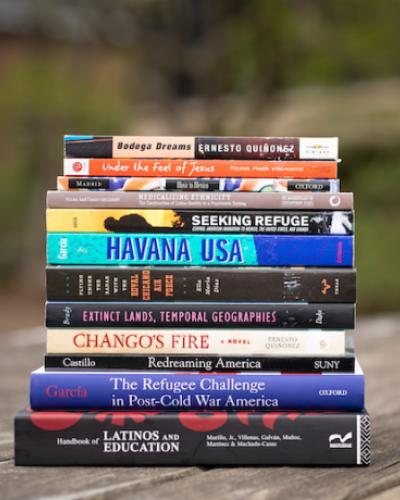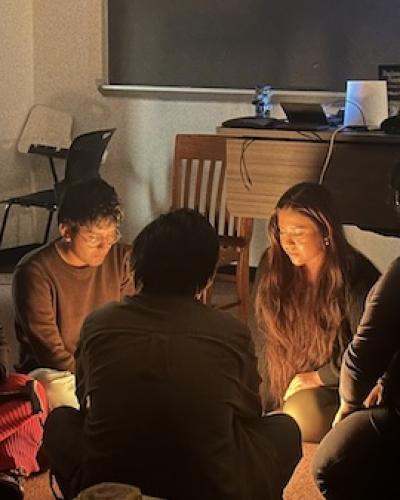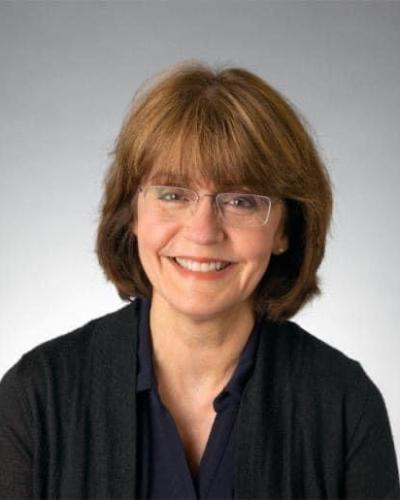President Martha E. Pollack announced the selection of the 2023 Stephen H. Weiss Teaching Awards recipients on Oct. 31.
“Undergraduate teaching is key to our academic mission, and the Weiss Awards enable us to recognize our most outstanding teachers, and their profound impact, in a deeply meaningful way,” Pollack said. “Our newest Weiss Fellows demonstrate an abiding commitment to their students, fostering an educational environment that encourages undergraduates to think critically and understand the concepts they are learning within their broader context.”
The awards – named in honor of the late Stephen H. Weiss ’57, who chaired the Cornell Board of Trustees from 1989-97 – honor faculty members who have demonstrated a sustained commitment to teaching and mentoring undergraduate students.
A selection committee of six faculty members, two graduate students and one undergraduate student reviewed deserving nominations to determine this year’s winners. The nomination process requires letters of support from faculty and students, course descriptions and course evaluations.
The Stephen H. Weiss Presidential Fellows are María Cristina García, the Howard A. Newman Professor of American Studies in the College of Arts and Sciences (A&S); Michael Stillman, professor of mathematics (A&S); and Sunghwan “Sunny” Jung, professor and director of graduate studies, biological and environmental engineering in the College of Agriculture and Life Sciences (CALS).
María Cristina García, a 2016 Andrew Carnegie Fellow, teaches and writes about modern U.S. history, Latino history, and immigration and refugee history.
Nominators described García as brilliant, masterful, creative and engaging, and said she is a trusted colleague even when navigating the most difficult, complex issues of our day.
García’s consistently supportive approach has been particularly impactful for first-generation, undocumented and Latino students, who described her classes as a safe haven where they feel seen and respected.
García asks her students to take ownership of their own learning and to define their goals for the semester and assess their own performance.
“This is a groundbreaking approach, backed by impressive research, that gets students to de-emphasize grades and focus on their own intellectual growth and take ownership of their learning,” a colleague wrote in the nomination letter.
Her thoughtfully planned classes inspired many students. “I never thought I would be sitting in class teary-eyed and jaw opened,” one student evaluation said.
Michael Stillman’s nominators turned to data from student evaluations to support his nomination: “In describing him, (students) use the word ‘awesome’ 15 times, ‘energy’ or ‘energetic’ 22 times, ‘best’ 46 times, ‘engaged’ or ‘engaging’ 49 times and ‘great’ 150 times.”
But even that falls short of quantifying the spark he brings to the classroom, nominators wrote.
“I can assure you there is something else that Mike does that makes it all work for such a large percentage of his students,” one of his nominators wrote. “I wish I knew exactly what it is, perhaps the ability to remain crystal clear throughout, an engaging simplicity of language and superb blackboard handwriting, a stage presence that constantly engages the audience. It takes a special talent and Mike has it.”
Students and colleagues noted Stillman’s particular talent at teaching large courses for general audiences of nonmajors. Since joining the Cornell faculty in 1987, Stillman has developed an approach to teaching mathematics that his students describe as exciting and even “magic.”
Sunghwan “Sunny” Jung has made an outsized impact on the Department of Biological and Environmental Engineering since joining the Cornell faculty five years ago, nominators wrote.
Most notably, he redesigned the capstone class, making it hands-on and demonstrating how students’ education can have a real-world impact. “His course bridges lectures and engineering design to build something tangible. Sunny went above and beyond the call of duty to create and teach this course; it shows his true commitment to undergraduate education,” one of his nominators wrote.
Another course focuses on biologically inspired robotics, a rapidly developing field. The course culminates in participation in a national robotics competition at the annual meeting of the American Society of Biological and Environmental Engineers.
Jung takes an active-learning approach to his classes, inspiring students to have a deeper understanding of difficult content. He also pushes them outside of their comfort zones. Multiple nominators credited Jung with motivating them to travel, apply for grants and present at conferences.
The Stephen H. Weiss Provost’s Teaching Awards honor nontenured faculty. This year’s fellows are Cynthia Kinsland, senior lecturer of chemistry and chemical biology (A&S), and Jeffrey Perry, senior lecturer of global development (CALS).
Students and colleagues praise Cynthia Kinsland’s ability to maintain a personal connection with students, even when interacting with more than 1,000 students per semester in chemistry lectures and labs.
Kinsland, director of Cornell’s Undergraduate Laboratories since 2013, is constantly evolving her approach to teaching. Nominators described her as a masterful collaborator who takes feedback from both students and colleagues.
One colleague complimented her work to replace “cookbook” chemistry experiments from her labs with student-designed, inquiry-based investigations.
Kinsland has a “profound ability to connect with and mentor those she educated and convey a broad collection of complex concepts in an engaging and exciting manner,” one student wrote, noting, “Kinsland possesses incredible compassion and kindness for her students, especially when close support is needed. … Kinsland was a pillar of support for me during a challenging period in my career, and I am incredibly grateful for her compassion.”
Jeffrey Perry’s colleagues describe him has a connector who builds bridges between the university and outside community, coordinating student fieldwork assignments at local extension and education programs, facilitating a partnership with Ithaca College that enables Cornell students to pursue a Master of Arts degree in teaching and enthusiastically advising student organizations.
Perry’s students compliment his enthusiasm and ability to create an active, inclusive classroom. As the main instructor for the education minor, he seeks to understand his students’ personal learning goals in his classes and when placing them in real-world classrooms to complete fieldwork that aligns with their interests.
“Jeff is a pillar for the education minor,” one nominator wrote. “It would be impossible to deliver the minor without him. His commitment to future educators supports our undergraduates and the entire New York state education system – which is the beneficiary of much of his care and labor.”
This article originally appeared in the Cornell Chronicle




